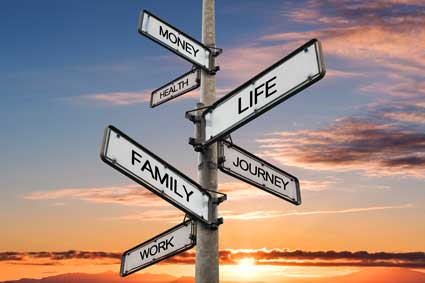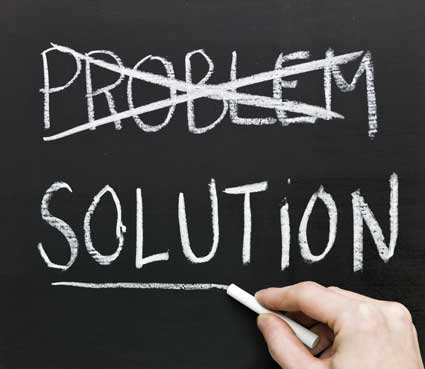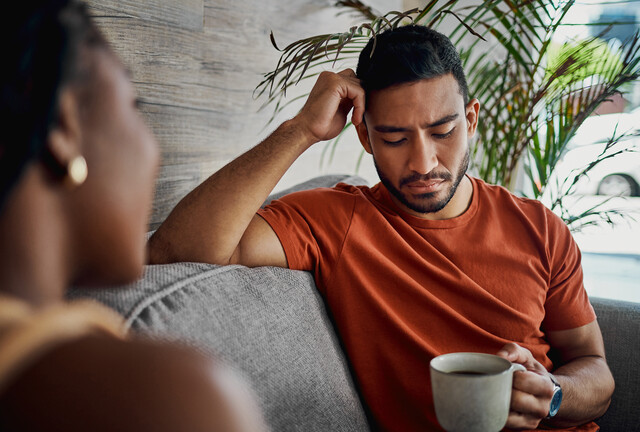When discussing social anxiety, the concept of rejection typically comes up. With social anxiety, one of the fears that a person will develop is a fear of rejection. This fear often affects how a person with social anxiety will act when in a social setting, and can dictate their decisions as they try to avoid it.
As rejection is such a large part of social anxiety, it is best to know about what role it plays and how it impacts a person with social anxiety. Rejection is another important aspect of the topic at hand that you must learn about. This article will cover the different factors that are a part of rejection and social anxiety, as well as offer some tools and strategies that may help those with social anxiety handle instances of rejection.
What Do You Mean By "Rejection"?
In the context of social anxiety, rejection means to be shunned or ignored by others in a social setting. It can be on purpose or accidental, or the person who is doing the rejecting may not even be aware of their actions. Rejection is a common occurrence in life, regardless of if you have social anxiety or not. Anyone who has ever been rejected socially can agree that it truly hurts and will often leave a mark on your memory. Did you ever ask someone on a date and they said no? What about being picked last in gym class? Maybe some of your friends did something together but didn't invite you. That feeling you had? That is rejection.
Humans are, by nature, social creatures. Even when a person has social anxiety, there is a part of them that craves interaction with another person, even though it can cause them stress. It is that desire for socialization that is responsible for why rejection makes us feel the way that we do. When you don't get that desired socialization, or you don't get enough of it, the pain of rejection is the response that tells you that you failed to meet that need. It's like being hungry, yet not eating enough at a meal to satisfy your appetite. You are still hungry and your body will keep telling you to fix it until you do something about. That pain that a person feels upon being rejected follows the same logic and is a survival instinct designed to keep us from being alone.
For many cases of rejection, even when social anxiety isn't a factor, people don't handle it well. Some may already have a mindset that rejection in all forms is negative or they simply have little experience being rejected. It tells them that they have done something wrong and many people dislike that feeling. They may try to fix the situation--which may not work out too well in some cases, such as if they were rejected romantically--or they may try to find out what they did wrong. Sometimes, the person doing the rejecting will simply want to walk away and not offer any answers.
What Role Does Rejection Play With Social Anxiety?
Rejection for those with social anxiety is, to put it mildly, terrifying. It plays into the fear that they are doing something wrong during social interaction and being rejected is a confirmation that they have messed up. In many cases, the rejection isn't actually happening. Social anxiety messes with a person's mind in such a way that they will perceive and misinterpret even the most positive praise as something negative or hurtful. If a person with social anxiety feels like they have been rejected in a social situation, then if functions as a confirmation that they have done something wrong and it fuels their anxiety even further.
-
Abandonment Anxiety--Abandonment anxiety occurs when a person feels like they are not only being rejected, but outright forgotten about. It may be evidence that they experienced neglect when they were younger and it has developed into a fear that manifests through their social anxiety. For a person who has social anxiety and abandonment anxiety, rejection can be much worse. They may think that there is no hope for them to undo or repair their actions that led to their rejection.
In response, they may try to get closer to the person who has rejected them in order to have a second chance for redemption. Both the rejection and the abandonment may not be as real as they think it is and trying to redeem themselves with the person they believe they have offended can backfire. They may overdo it and possibly overstep social boundaries in the process, leading them to actually be rejected or abandoned. The distress that can be caused by such a situation can be magnified through a person's social anxiety, as they will focus on the event and try to think about what they could have done better. Often, abandonment anxiety will only add to a socially anxious person's fear of rejection and cause them even more distress in social situations than they already have.
-
Affects actions--There is a genuine fear with social anxiety that everyone you meet is judging every move you make. One little mistake--even if it's not a mistake to the other person!--can mean that you have failed and that person now has confirmed negative, horrible things about you. As every mistake can potentially lead to rejection, it can be a big deal for someone with social anxiety. In order to avoid being rejected, many people with social anxiety will watch and critique every single action they make and every word that they speak. They will increase their efforts to make sure that they are not messing up.
In the event that they do think they've slipped and made an error, they will increase their efforts even further to make up for it in that situation or to prevent it from happening in the next interaction. Improving one's social performance is often a recommendation for those with social anxiety, as it can break their cycle of rejection. However doing so can be dangerous, as some will push themselves to the point of exhaustion by trying to better their social interactions.
-
Increases anxiety response--With social anxiety, every social interaction that occurs without issue is seen as a victory. The size of the interaction doesn't matter as for some people with social anxiety, the simple act of handing money to a cashier at the grocery store is as significant as having a meeting with a queen. On the reverse, interactions that do not go smoothly are going to have a devastating effect on a person with social anxiety. This disproportionate small victories-big failures can cause a person with social anxiety to have an increased anxiety response. They may have already been exhibiting anxiety symptoms at the start of the interaction, but as soon as they are rejected, those symptoms may escalate. Lashing out is a common response to rejection, both in people with and without social anxiety; it is another part of the instinct behind the pain of rejection. It can make it harder for them to calm themselves down and their normal coping strategies may not be as effective as they are when rejection isn't involved.
Coping Tools and Strategies for Handling Rejection
With every aspect of social anxiety, there strategies and tools that you can use to cope when you are overwhelmed and your anxiety kicks into high gear. this lesson will also provide strategies for handling rejection and social anxiety.
Each of the following strategies are suggestions of what a person with social anxiety can do if they experience rejection in a social situation. There isn't any specific strategy that will work every time or for everyone, so it may be possible that one of the follow won't work for you. There are also more strategies out there and some people tend to come up with their own that are specific to them. Try what you want and if it doesn't work, try something else.
-
Reassess the situation--Because social anxiety will convince a person that something is negative when it actually isn't, an instance of rejection in a social situation may not actually be rejection. Signals can be misread or poorly sent and can cause a mess in a situation. Stopping for a moment and reassessing the situation to see if what you think has happened actually happened can help prevent further issue. Maybe there was something you missed in the conversation? Maybe the look they gave you wasn't one of disgust but instead was one of careful consideration? Maybe that's just how their face looks and it's not due to something you said or did.
Sometimes the person you are interacting with is just really bad at communicating their thoughts and that is just how the act with everyone. It is also possible that the person you are interacting with misinterpreted something you said or did and responded to it based on their error, not yours. Putting the pause button on a situation, even on your end, so you can reassess what has happened will often allow you to put your social anxiety at ease.
-
Talk to someone--As mentioned before, talking to someone can be a highly beneficial coping strategy because it allows you to vent your feelings. It is recommended that people with social anxiety have a support system for this exact reason. Having a person to talk with when your social anxiety gets the better of you can not only calm you down, but help you see a situation from the perspective of another. They can help you work through your thoughts and act as a guide.
In some cases when your social anxiety causes an issue and convinces you that you have been rejected, talking with someone you trust can allow you to hear a voice of reason. The people in your support system often recognize when your social anxiety is active before you do and they can sometimes help before things get too far out of hand. They know how your social anxiety affects you, and thus they know what to do or say that will help you.
-
Question yourself--Sometimes, the person you need to talk to is yourself. Questioning the response of your social anxiety in regards to a perceived moment of rejection can stop it in its tracks. Asking yourself if what you think happened actually happened can cut off the train of thought that your social anxiety had you on, effectively derailing it so you can calm yourself down.
Questioning yourself when your social anxiety responds can also be a way of calming yourself down, even when it's not specific to rejection. Some people with social anxiety put together a list of questions that they ask themselves as a distraction. The questions might have nothing to do with the situation at hand, but could simply be things that you can ask yourself to redirect your thoughts away from the cause of your anxiety in that moment.
-
Step away from the situation--Stopping to reassess the situation sometimes isn't enough and you need to actually walk away to figure things out. Some social interactions can be too overwhelming for people with social anxiety to focus enough to calm themselves down or continue with their conversation. Taking a step back to remove yourself from aggravating stimuli can be an effective coping technique because it takes what is bothering you out of your presence. Retreating into a different environment can allow you to focus without added distractions. Take a moment or two to readjust yourself, calm down, and then rejoin the group.
Many people with social anxiety will continue to think about a negative interaction. As detrimental as that can be, it can also be used to their advantage. Taking the time to step away can allow you to think over what just happened. Reassessing a situation, as stated above, is effective but not when you can't focus enough to do so. Thinking about what happened, even if you are trying to do so in a positive manner, can be difficult if you are still being overwhelmed by what caused your feelings of rejection in the first place.































